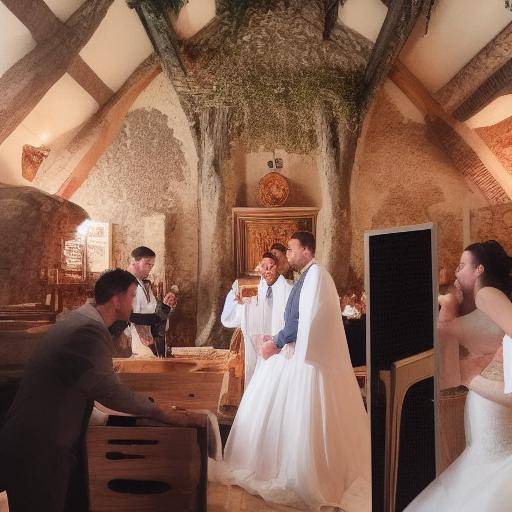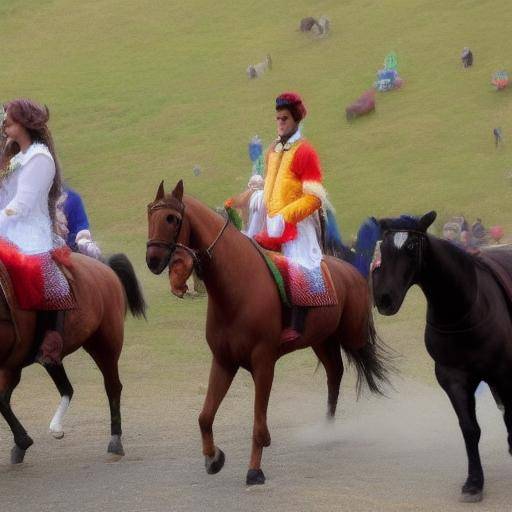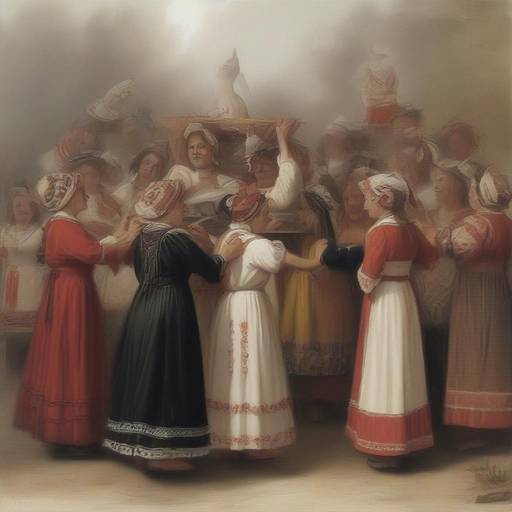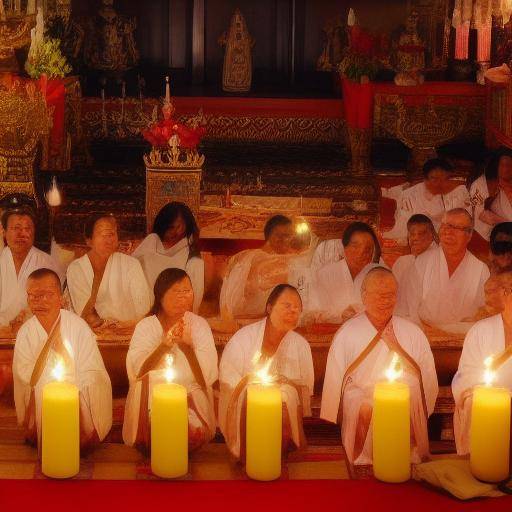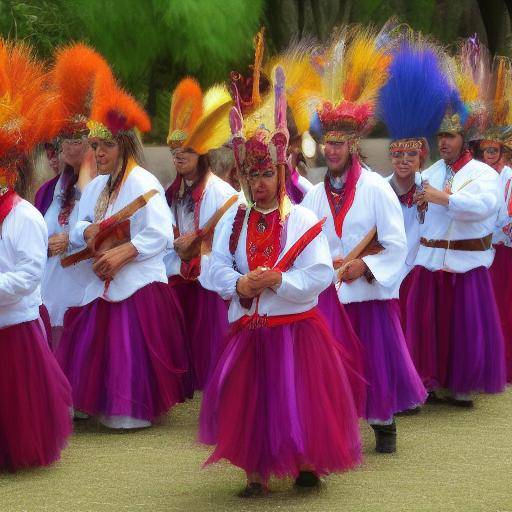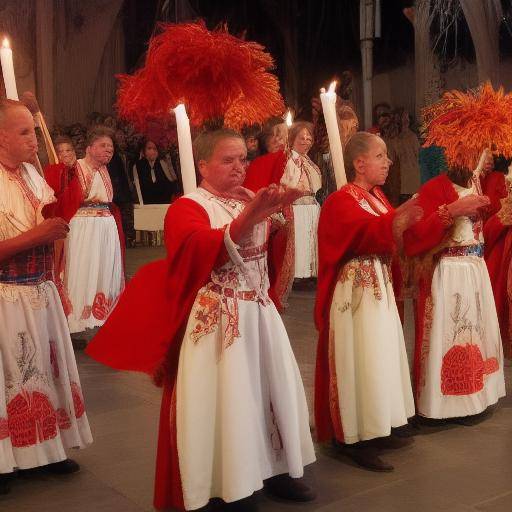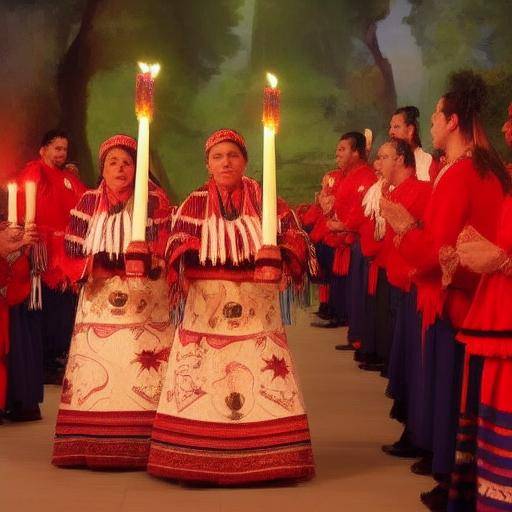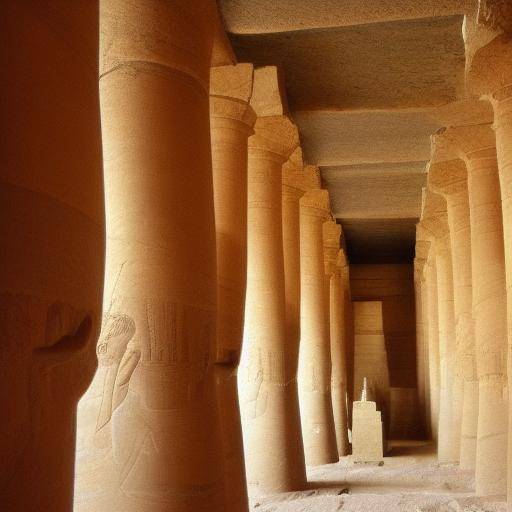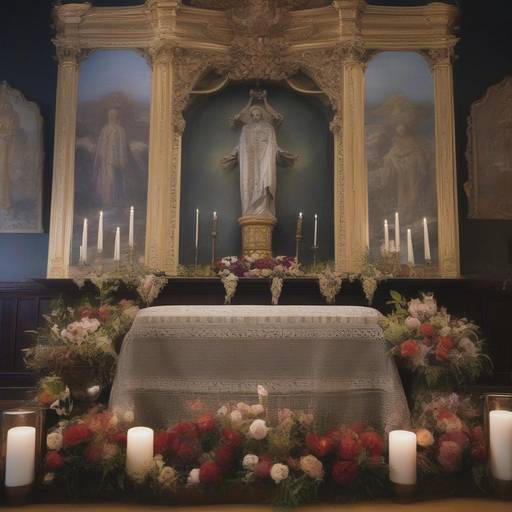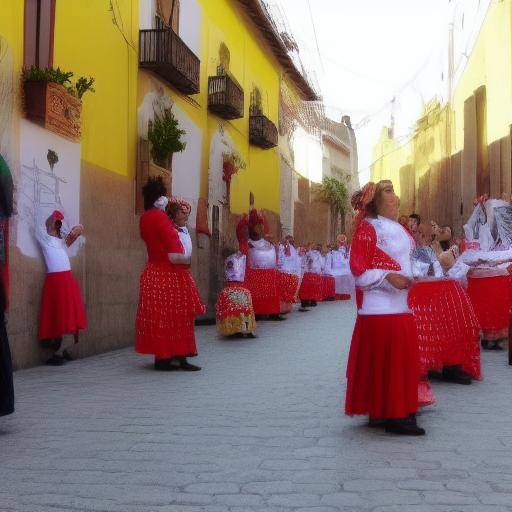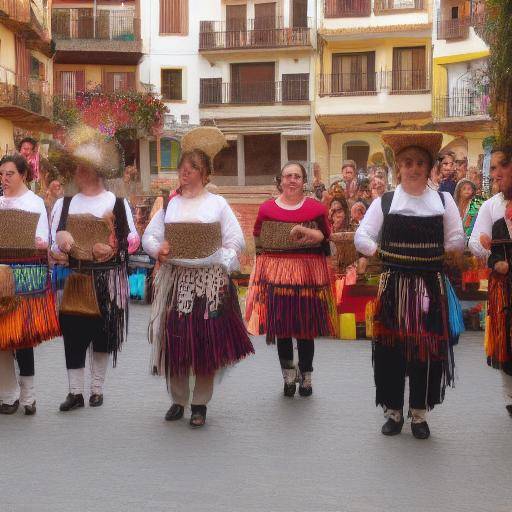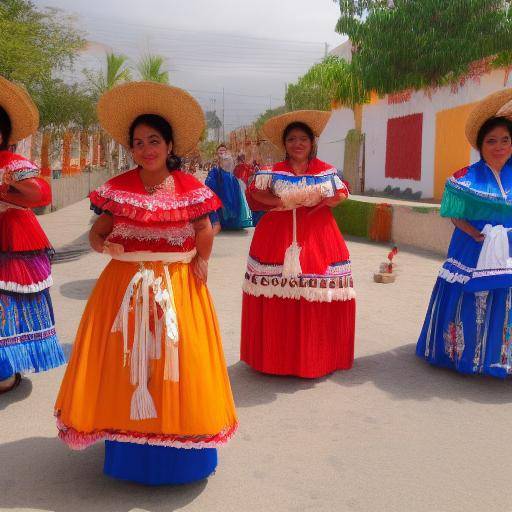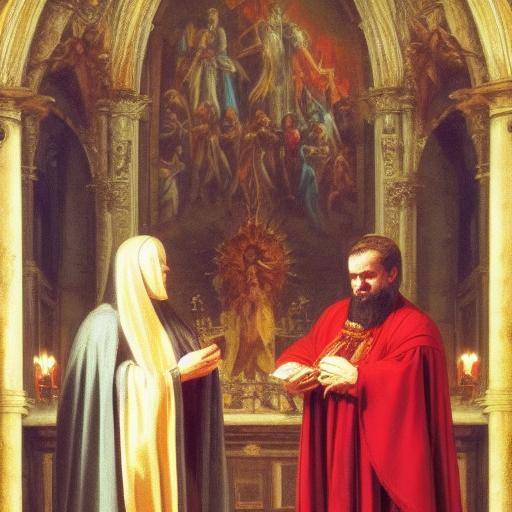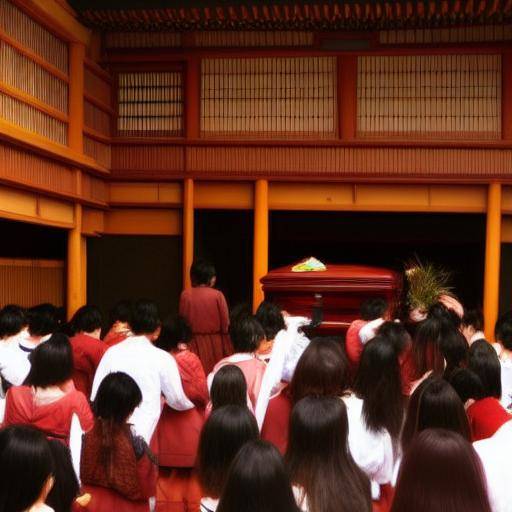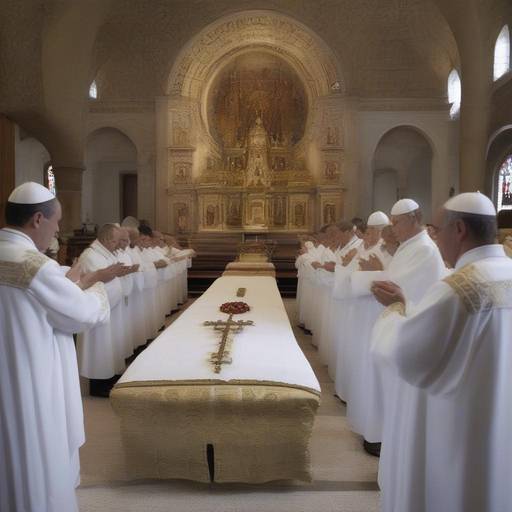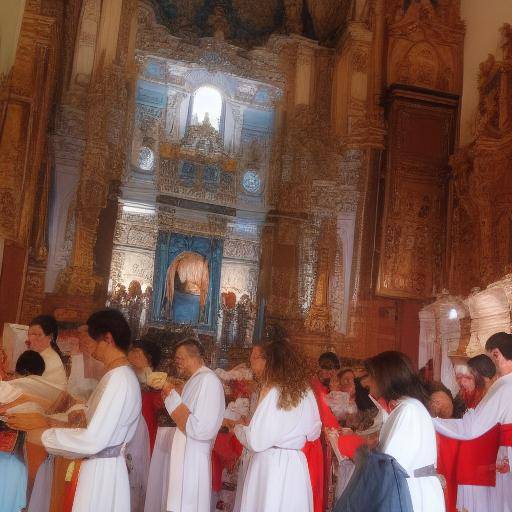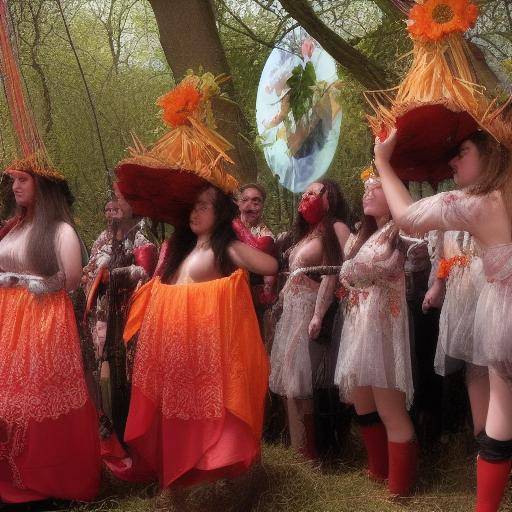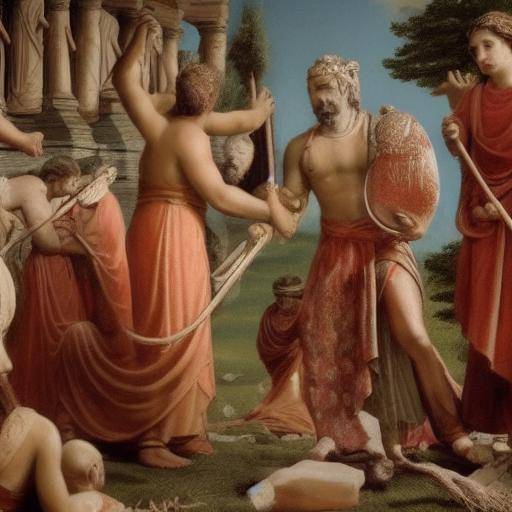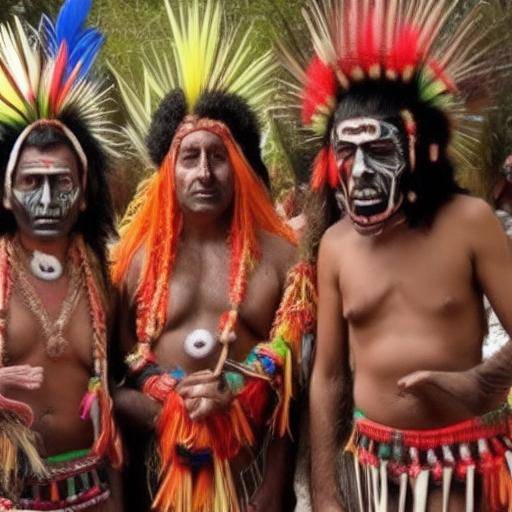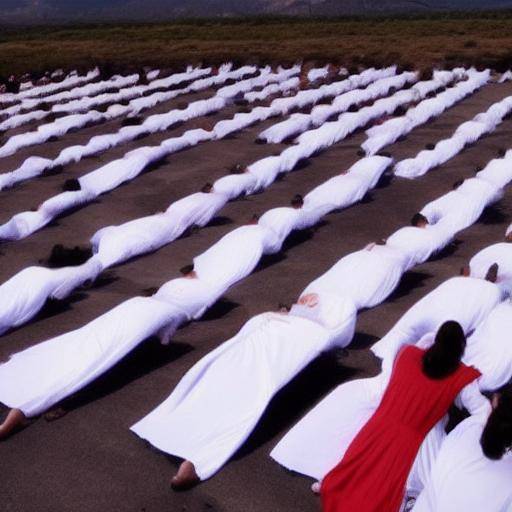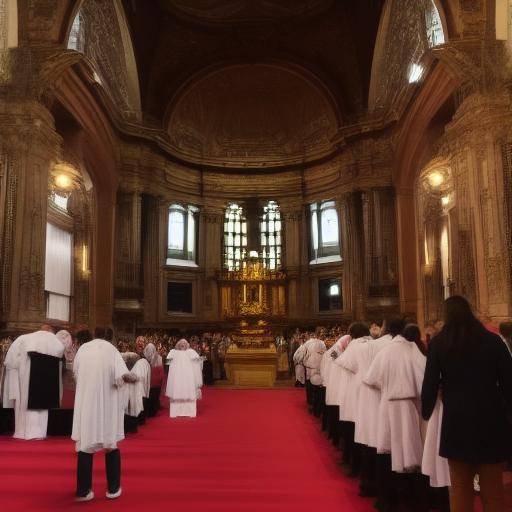
Celtic culture, in its various manifestations, is an inexhaustible source of mysticism and ancient traditions. The funeral rituals of the Celts, in particular, reveal a profound connection with nature and a unique vision of death and beyond. In this article, we will explore in detail the funeral rituals in Celtic culture, its meaning, evolution and its relevance today.
Introduction
Funeral rituals are a fundamental part of the Celtic tradition, showing a profound reverence for the transition from life to death. In the Celtic period, the funerals were events of great importance, where the spirit of the deceased was believed to be guided and cared for in their transit to the beyond. This approach in the accompaniment of the deceased has permeated Celtic culture to the present day, influencing funeral practices in regions where their legacy persists. Let us know thoroughly the funeral rituals in the Celtic culture and its lasting meaning.
History and Background
The Celts, descendants of an Indo-European civilization, spread throughout Europe between 800 BC and 400 AD. They worshiped nature and believed in the immortality of the soul, which deeply influenced their funeral rites. Celts honored their deceased with elaborate ceremonies that included chants, ritual dances and offerings, demonstrating the importance they attached to the cycle of life and death. Over the centuries, these rituals were evolving, adapting to later religious influences, such as the arrival of Christianity to the Celtic lands.
In the Middle Ages, the Celtic influence on funeral rituals was remarkable, and many of its traditions were mixed with Christian practices, creating hybrid rituals that can still be seen in certain communities. Today, Celtic culture remains a source of inspiration for many, and its funeral rituals, although adapted to modern times, retain ancestral elements that reflect the deep connection with nature and the cycle of life.
Analysis in Deep
Funeral rituals in Celtic culture offer a unique perspective on death and beyond. Unlike many other cultures, Celts did not see death as the absolute end, but as a transition to another state of existence. In the Celtic world, funeral rituals were the opportunity to accompany the deceased on his spiritual journey, giving him the necessary tools to cross the other world. This vision of death as a transit and not as an end has left an imprint on the funeral practices of the current Celtic communities.
By deepening the understanding of these rituals, we can also appreciate their influence on contemporary traditions. Elements such as respect for nature, the importance of the community in the mourning process and the spiritual connection with the ancestors remain relevant aspects in modern celebrity funeral ceremonies. This continuity between the past and the present demonstrates the durability and relevance of funeral rituals in Celtic culture.
Comprehensive review
Funeral rituals in Celtic culture present a wealth of practices and symbolism that deserve detailed analysis. From the elaborate preparation of the deceased's body to the celebration of commemorative festivals, each aspect of these rituals reveals a profound connection with nature and a spiritual vision of death. In addition, Celtic influence remains evident in regions where its legacy persists, inspiring and informing contemporary funeral practices.
Experts in the field of anthropology and comparative history point out the importance of preserving and understanding Celtic funeral rituals as an integral part of the cultural heritage of mankind. As the interest in ancestral and spiritual traditions grows, Celtic funeral rituals acquire a renewed relevance, serving as a source of inspiration for those who wish to honor their loved ones in a more meaningful way and connected with nature.
Comparative analysis
It is interesting to compare Celtic funeral rituals with funeral practices of other cultures. While some cultures emphasize mourning and mourning as the main part of funerals, Celtic culture tends to celebrate the life of the deceased through rituals with a strong spiritual component. This distinction highlights the diversity of approaches to death and shows how funeral rituals can reveal the deepest beliefs and values of a society.
Comparison with contemporary funeral rituals also offers a valuable perspective. By observing how Celtic rituals have evolved over time, we can appreciate how funeral traditions continue to adapt to meet the needs and beliefs of modern communities. This comparative analysis invites us to reflect on the changing nature of funeral rituals and how each culture addresses the transition of death in a unique way.
Practical Tips and Recommendations
If you are interested in honoring your loved ones through funeral rituals inspired by Celtic culture, here are some practical recommendations that can enrich the experience:
- It incorporates elements of nature: Celtic culture attached great importance to the connection with nature. Consider celebrating the funeral in a natural environment or integrate elements such as stones, flowers and water at the ceremony.
- Honor memory through music and singing: Celts had musical traditions and ritual songs to honor the dead. Consider including meaningful music or songs at the ceremony to create an emotional and spiritual environment.
- Favor the community and mutual support: Celtic rituals emphasized the importance of the community in the mourning process. It invites close relatives and friends to participate actively in the ceremony and to share memories and experiences.
- It creates a commemorative sanctuary: In Celtic culture, certain places were believed to have a special connection with the beyond. Create a commemorative space in your home or in a significant place to remember and honor the deceased.
Conclusions and FAQs
Funeral rituals in Celtic culture offer a unique and meaningful view of how to honor the deceased and celebrate life in a spiritual and natural context. The influence of Celtic culture on contemporary funeral practices is evident, and its legacy persists in the traditions and beliefs of many communities.
If you're interested in further exploring Celtic funerary rituals, here are some frequent questions that can help you better understand this topic:
How was the deceased's body prepared in Celtic funeral rituals?
The preparation of the deceased's body in the Celtic culture involved specific cleansing and clothing rituals, aimed at ensuring an appropriate step towards the beyond. The bodies could be placed in fetal or seated position, accompanied by significant personal objects.
What role does nature play in Celtic funeral rituals?
Nature occupied a central place in Celtic rituals, considering it as a sacred and rejuvenating element. Burials were performed in natural places, and elements such as flowers, branches and stones were used in funeral rituals to symbolize the connection with the earth and the cycle of life.
How did Celtic funeral rituals evolve over time?
The influence of various cultural currents, including Christianity, shaped the evolution of Celtic funeral rituals. To weigh the external impositions, many essential elements of the Celtic tradition continued to manifest themselves in funeral practices, showing a resilient resistance to the loss of their ancestral beliefs and customs.
How can Celtic Spirituality be incorporated into contemporary funeral rituals?
Celtic spirituality can be incorporated into contemporary funeral rituals through the connection with nature, the celebration of the life of the deceased, ritual music and community participation. Integrating symbolic and spiritual elements associated with Celtic culture can enrich the farewell experience and honor the memory of the deceased in a meaningful way.
What lessons can we learn from Celtic funeral rituals today?
Celtic funeral rituals teach us the importance of honoring the transition to the beyond in a respectful and connected manner with nature. They also invite us to reflect on the continuity of ancestral traditions and their relevance in contemporary society, highlighting the importance of preserving and assessing cultural diversity.
How has Celtic culture been influenced by today's funeral practices?
Celtic culture has left an indelible mark on contemporary funeral practices through its approach to spirituality, the connection with nature and the celebration of the life of the deceased. Elements such as the importance of the community in the mourning process, the use of natural symbols and the integration of music and ritual chants have been lasting influences in the current funeral ceremonies.
Conclusion
Funeral rituals in Celtic culture are an extraordinary testimony of spiritual depth and the connection with nature that characterize this ancestral tradition. Over the centuries, Celtic funeral rituals have persisted and evolved, leaving their mark on contemporary funeral practices and offering meaningful lessons on respect for death and the meaning of memory.
By exploring Celtic funeral rituals, we can appreciate how the ancestral legacy of a culture can remain relevant and enriching in the modern world. The influence of Celtic culture in the way we honor our deceased invites us to reflect on the importance of preserving the spiritual traditions and values that connect us with our roots and nature.
In short, funeral rituals in Celtic culture offer us a profound and moving view of how death can be approached with respect, spirituality and connection to the earth. In honoring this cultural heritage, we also honor the memory of those who have preceded us, creating a legacy of love and connection that transcends time.
With this detailed look at funeral rituals in Celtic culture, we hope to have contributed to your understanding and appreciation for this rich tradition. May these teachings inspire you to honor the memory of your loved ones in a way that reflects the beauty and depth of Celtic culture.
Thank you for accompanying us on this journey!
References:
- Celtic Rituals: Embracing Life, Celebrating Death
- The Celts: History and Future
- Celtic Funeral Traditions
The information provided in this article is educational and informative and does not pretend to be a substitute for professional advice.






